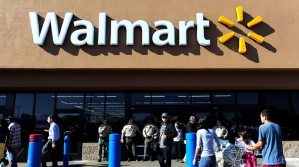
In a move to comply with federal regulations, one of the largest private sector companies in the United States has decided to eliminate health insurance for 30,000 part-time workers and raise premiums throughout its U.S. workforce.
The purpose of the cuts, according to Wal-Mart Stores Inc., has been to control the company's rising health care costs. In an Associated Press article posted on USA Today, Wal-Mart said that employees who work less than an average of 30 hours a week will no longer be offered health insurance.
"We had to make some tough decisions," said Sally Wellborn, Wal-Mart's senior vice president of benefits. "We are trying to balance the needs of (workers) as well as the costs of (workers) as well as the cost to Wal-Mart."
The change was announced in a Wal-Mart blog post on Tuesday. According to Reuters, that post cited health care expenses as a problem back in August, noting that more people enrolled in its plans, raising the company's annual forecast for health care costs by 50 percent.
"Like every company, Wal-Mart continues to face rising health care costs," Welborn wrote in the company's blog post. "This year, the expenses were significant and led us to make some tough decisions as we begin our annual enrollment."
According to Wal-Mart, the most popular and lowest-cost employee-only plans will have their bi-weekly premiums rise to $21.90, a 19 percent increase. Reuters noted that workers at Wal-Mart earn an average of $12.92 an hour.
The Wall Street Journal reported that Wal-Mart will use a third-party benefits adviser to help its affected workers find new health care coverage that complies with federal regulations.
"We can't predict where they will go, but we are going to help them find affordable health care," Welborn said.
Other U.S. companies such as Target, Home Depot and UPS have already decided to cut healthcare coverage for their part-time workers. According to an article posted in the Wall Street Journal, private-sector employers spent $446 billion on health insurance premiums in 2012 and are expected to pay $483 billion this year.
Wal-Mart and other big U.S. companies have been trying to comply with a January 2015 deadline under the Affordable Care Act. That law mandated that companies with 50 or more employees must offer health insurance to those working at least 30 hours a week or pay a penalty starting around $2,000 per worker; most individuals also have to show proof of health insurance or pay an individual penalty.
Critics have said that Wal-Mart's decision would mostly hurt lower-income workers, especially those who are not benefiting from the economic recovery. Other critics blamed the law instead, saying that it would force workers into government exchanges after companies dropped their coverage.







